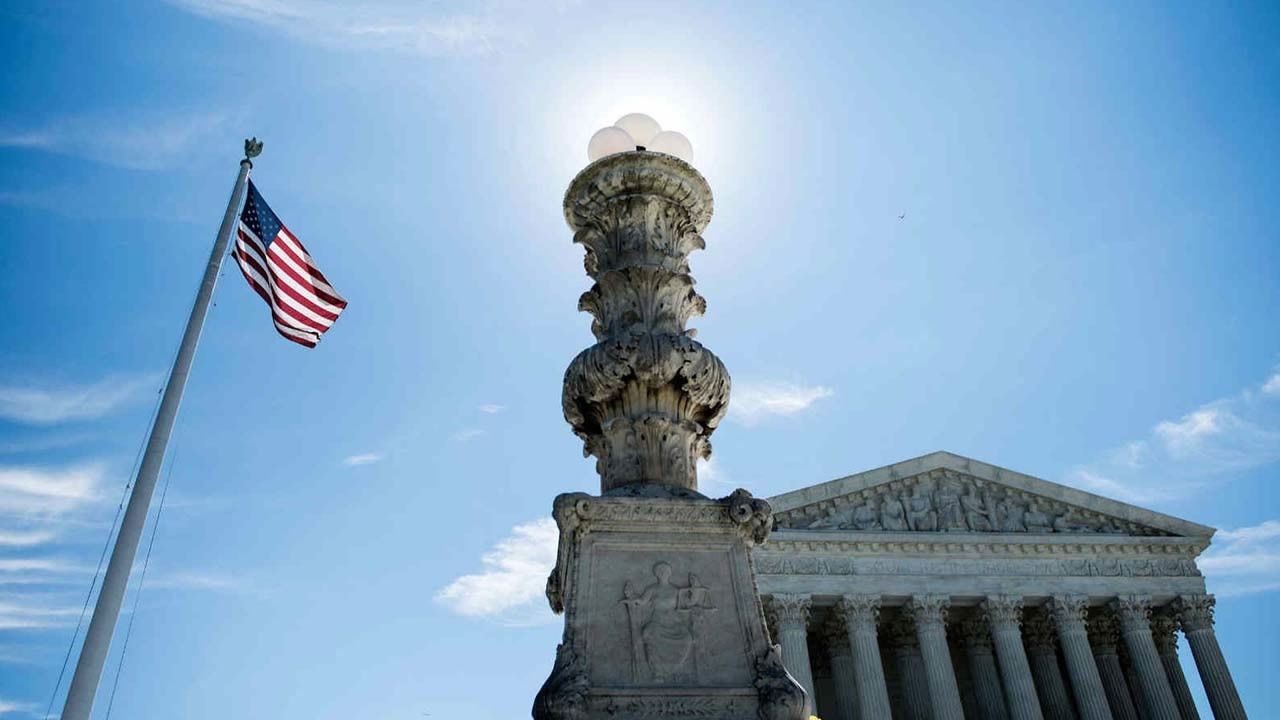
Editor's note: Huo Zhengxin is a professor of law at the China University of Political Science and Law. The article reflects the author's opinions and not necessarily the views of CGTN.
Amid the devastating human and economic losses caused by COVID-19 pandemics, at least nine lawsuits have been filed against China in U.S. courts seeking huge damages. Such lawsuits are routinely deemed "frivolous" as they distort the fact and ignore not only international law, but also American law.
Under the U.S. Foreign Sovereign Immunities Act (FSIA), a foreign state as well as its agency or instrumentality, in principle, cannot be sued in an American court. Although the FSIA does provide a few exceptions to the immunities, those lawsuits against China for COVID-19 meet none of them. To be more specific, the lawsuits claim fail to fall within statutory exceptions to immunity for tortious, or commercial, or the alleged terrorist acts in the United States. Therefore, law experts generally believe that they have almost zero chance of surviving even the very first jurisdictional hurdle. As an American scholar said, quiet correctly, "Don't Bother Suing China for Coronavirus!"
However, to my surprise, several members of the U.S. Congress have proposed bills amending the FSIA that would strip China of its immunity from suit in U.S. courts in cases dealing with COVID-19. Though I personally do not believe that such bills would be eventually passed by the U.S. Congress, China, nevertheless, should not keep silent. Moreover, given that playing tough on China has become a political correctness in the U.S. Congress and the Trump Administration is scapegoating China for its own COVID-19 failure, I believe that it is absolutely necessary for China to keep an eye on the development of such legislative move and to express its opposition in time.

A woman wearing a protective mask and googles walks along Canal Street in the Manhattan borough of New York, April 27, 2020. /AP
A woman wearing a protective mask and googles walks along Canal Street in the Manhattan borough of New York, April 27, 2020. /AP
First of all, China, as a sovereignty, enjoys immunity before U.S. domestic courts, which is a privilege enshrined in international law, rather than a favor granted by American law. Derived from the Latin maxim par in parem non habet imperium (an equal has no authority over an equal), state immunity is widely recognized as a principle of international law. Therefore, the bills of amending legislation to strip China of its sovereign immunity defense is an utter violation of international law which reflects the deep-rooted notion of American exceptionalism before international law. If such efforts succeed, the world order and the rule of law at international level would be undermined.
Second, the bills to amend legislation to grant jurisdiction to the U.S. courts over certain lawsuits that they otherwise lack deviates the U.S. constitutional principles and the American legal legacy. As it is known to all, the separation of powers and checks and balances are the most cherished principles of American Constitution and its democracy, under which the three branches of government (executive, legislative, and judicial) are kept separate and should resist the blandishments and incursions of the others. Therefore, if these congressional efforts to "help" the U.S. courts to overcome the legal obstacles turn out to be successful, the American Constitution, I am afraid, would be at risk and the American law textbooks have to be rewritten.
Last, but not least, if the U.S. is playing with fire by threatening to carry out lawsuits against China, to default on the China's holdings of U.S. T-bills and demanding COVID-19 reparations from China, it is opening a Pandora's Box.
After all, sovereign immunity is based on sovereign equality and reciprocity, the U.S. respects the principle not as a unilateral favor to other countries but because it expects other countries to respect and protect the immunity of the U.S. in their countries. Therefore, if the U.S. Congress allows lawsuits against China to proceed here, China has every right under international law to take "reciprocal measures" against the U.S. Simply put, if the U.S. Congress passed the bill to strip China's sovereign immunity in the heat of this election year, a lose-lose situation will arise inevitably.
As of now, the U.S., unfortunately, is leading the world in COVID-19 infections and fatalities − 1 million and over 58,000 respectively. At this critical moment, the U.S. government should stop playing the blame game and learn to take its responsibility to contain the spread of coronavirus in its own country. China should not be scapegoated for the shocking loss in the U.S. caused by COVID-19, nor should the Europeans, Africans or anyone else. As coronavirus knows no borders, and they do not care about the nationalities, what the international community needs now is cooperation and mutual support. If all countries unite, we can beat COVID-19. However, if the U.S. government continues to point fingers, quarrel and play the blame game, we all lose.
(If you want to contribute and have specific expertise, please contact us at opinions@cgtn.com.)